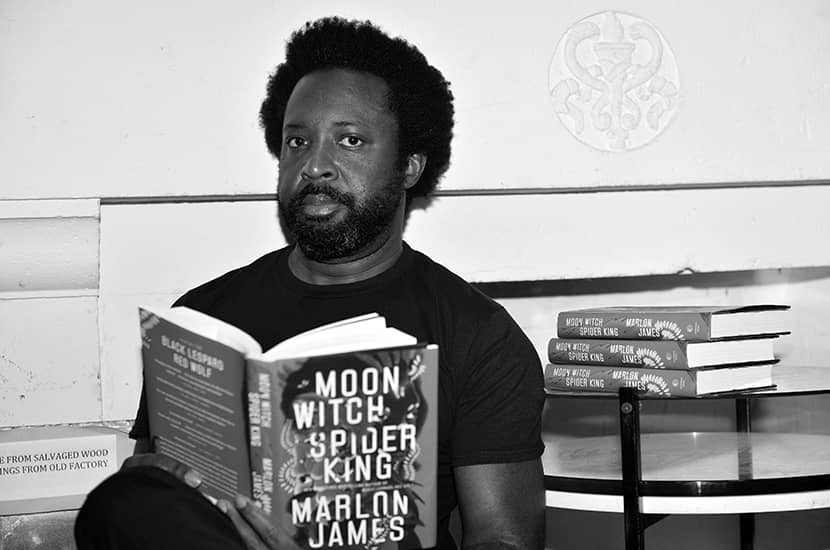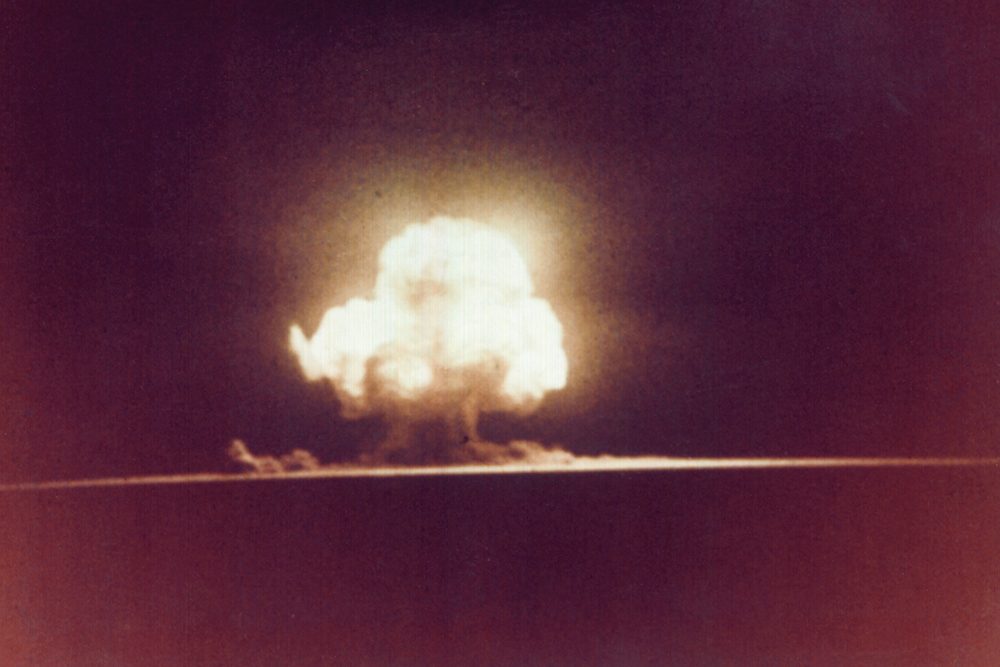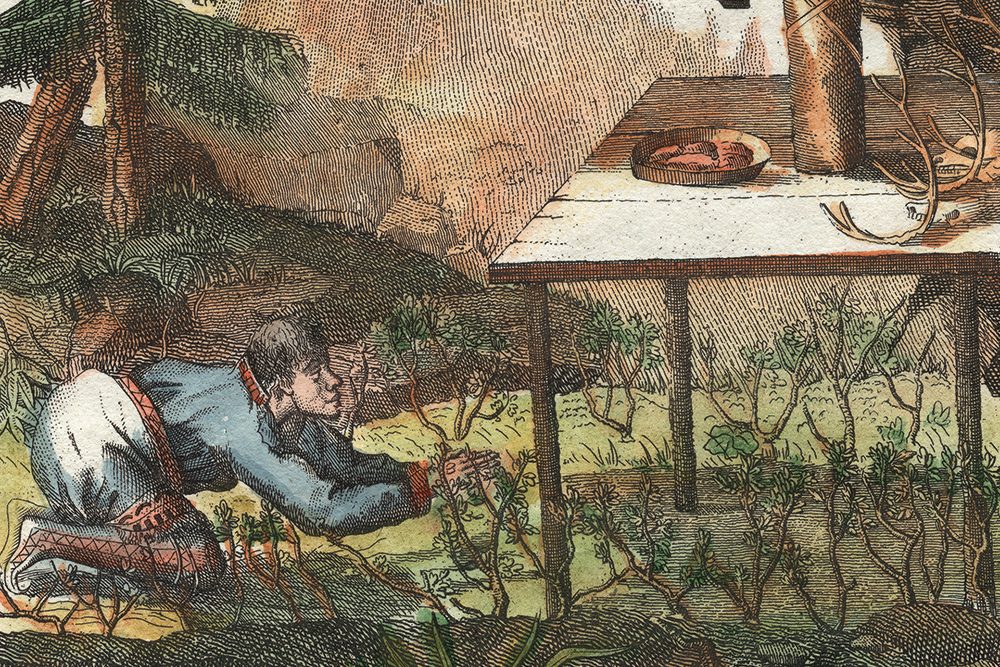When the first volume of Marlon James’s Dark Star trilogy appeared in 2019, it was quickly recognized as a masterly work of fantasy fiction, drawing comparisons with Tolkien, Angela Carter and Beowulf. Part quest narrative, part picaresque, Black Leopard, Red Wolf follows a man named Tracker as he weaves a trail through various lands, encountering a magical cast of shapeshifters, witches and powerbrokers in a seemingly never-ending search for a lost child. Yet, already in this first installment, Dark Star was showing signs of something more complex than is usually found in fantasy, a quality that, in terms of a world culture, distinguishes the great epics of history, in which cosmic sweep is married with lyric detail to convey what the poet John Koethe calls ‘the generic lives /We all lead, interchangeable, yet every one a story to itself /Whose truth lies in its style’.
That humanist grounding is, perhaps, even more visible in this second volume, Moon Witch, Spider King, where the narrative shifts from Tracker to the witch Sogolon, one of his many adversaries in the first book. Now, we not only get to see the initial quest from her perspective; we are also shifted into a different time frame, a new worldview that, in many ways, dwarfs that of the man who had seemed to be at the tale’s centre.
It is a brilliant move, one that establishes a new vision for the trilogy as a whole and confirms Dark Star as a true epic, worthy of comparison to, say, the Mahabharata or the Nibelungenlied. Yet it also raises important questions about narratology in a postcolonial culture, as James explained to an interviewer last year. Citing Akira Kurosawa’s 1950 film Rashomon, often misunderstood in western culture as a mere compendium of unreliable narratives, he said:
“I’ve seen Rashomon at least ten times… A lot of non-western storytelling flows this way. In several traditional African and diaspora stories, there is no authentic version, no director’s cut, no one truth to rule them all, which is very much a western thing to do, but also a reductive thing to do. Then there is this — in a lot of African folk tales, the trickster is the one telling you the story, or it’s about him, which ties you to his perspective, his world view, even his biases and prejudices… The burden of truth is not on the tale itself, but in what you discern truth to be… So in that spirit, I will never tell the reader which character or story to believe. I’m leaving the burden of truth up to the reader, so it will be interesting when this trilogy is done, seeing whose story they count as true.”
By adopting this stance, James gains access to forms of storytelling we discover in indigenous narratives across the world, from the Dreamtime stories of pre-colonial Australia to The Mabinogion. The result is an exhilarating tour de force that permits its reader voyage into a story world that utterly transcends the “one truth” version of reality that a reductive, contrivedly “objective” culture imposes on itself.
At the same time, the magisterial sweep of Moon Witch, Spider King, combined with its nuanced characterizations, raise even more expectations of the final volume in this superb opus. “Years make the same eye see the same thing but read it new,” the storyteller says near the start of the novel. We can only look forward in anticipation of what new readings the years will bring to this Dark Star.
This article was originally published in The Spectator’s UK magazine. Subscribe to the World edition here.

























